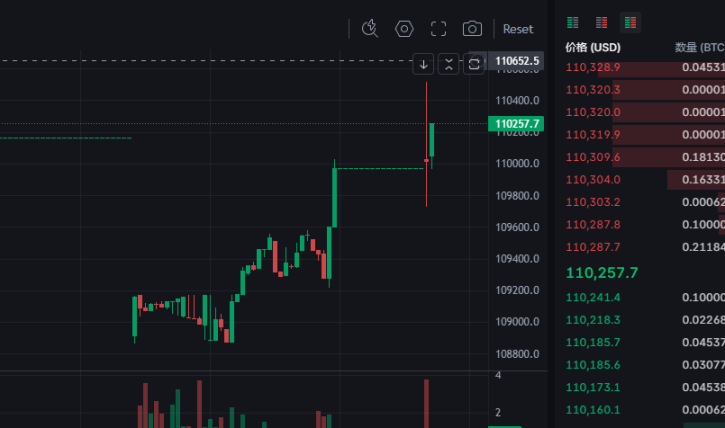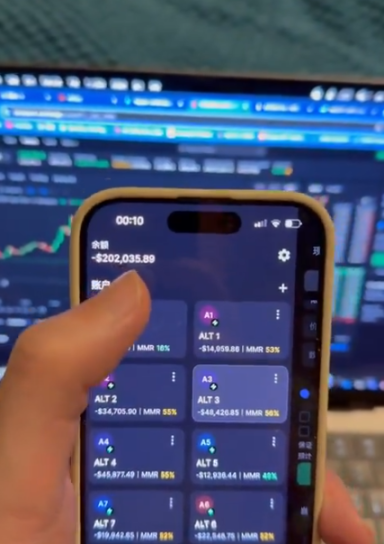Original Author: 1912212.eth, Foresight News
On July 3, the Solana ecosystem exchange Backpack experienced a major failure due to a system maintenance error, leading to user order chaos, loss of position data, and unexpected losses for some traders. This day coincided with the official launch of Backpack's second season points event, but just hours later, it encountered this significant technical failure. Was it due to a surge in traffic or other reasons? This incident has also raised questions about Backpack's technical capabilities, leaving countless users who came for its high expectations of airdrops in a dilemma: should they continue to chase potential token rewards or quickly withdraw to avoid risks?
From Routine Maintenance to System Disaster
At 5:35 PM on July 3, Backpack officially announced that it would conduct routine system maintenance at 6 PM, expecting service interruptions for several hours. The incident was sudden, catching some users off guard, but they chose to patiently wait for the maintenance to officially end. However, after the maintenance ended, the platform did not return to normal as expected; instead, it fell into a technical disaster.

A significant number of user orders were disordered, with forced long and short positions opened, position records disappeared, and some even owed the exchange hundreds of thousands of dollars.

Backpack subsequently issued an urgent statement saying, "All users with positions today will receive double points rewards. For users who suffered unexpected losses during the maintenance, please send an email to Backpack's official email, and we will process compensation after investigation and confirmation."
Some speculate that the failure may have originated from a database rollback error or loss of backup data. Although Backpack has not disclosed specific technical details, this error clearly exposed its inability to match technical management capabilities during rapid expansion.
Meanwhile, various technical errors of the Backpack system circulated on social media, with some community users expressing their grievances on social media.

One community user posted a screenshot stating, "Owing Backpack about $740,000." Another user shared a video complaining about a loss of over $200,000.

Some community users achieved VIP 2 status by inflating trading volume, only to have it rolled back to VIP 1.
"All positions on the platform are messed up; my account was inexplicably added with more than double the short positions, losing thousands of dollars, and I can't close my positions, just waiting!"
"I've now lost $200,000 to Backpack, and I can't even tell my wife. I'm so scared, what should I do?"
User Pain: The Collision of Economic Loss and Airdrop Frenzy
Backpack is a crypto platform founded in 2022 by former FTX executive Armani Ferrante, integrating wallet, exchange, and NFT ecosystems, rapidly rising due to the low cost and high performance of the Solana ecosystem. Its exchange is known for low fees and high liquidity; as of May this year, according to official data, the platform's managed assets had reached $200 million. However, this incident has cast a shadow over Backpack's reputation.
For many users, this failure is not just a technical issue but a real monetary loss. One user lamented, "My positions are gone, and I can't find my trading records; I missed a 1300% rise in a certain token!"
Another user stated that due to the inability to close positions in time, their account lost thousands of dollars amid market fluctuations. During the failure, some users were even unable to transfer assets to other wallets, such as Phantom or Solflare, further exacerbating the panic.
However, a considerable portion of Backpack's user base consists of "airdrop hunters" attracted by its high expected airdrops. Since Backpack launched its volume-based points system in February 2024, market expectations for its token airdrop have continued to rise.
The official announcement stated: Starting from 7 AM Beijing time on February 14, the account trading volume points system would be activated, and the ranking of the points system would serve as an important reference for future large marketing activities (such as airdrop eligibility or Launch Pool projects). This hint was widely interpreted as a prelude to a token airdrop, attracting a large number of traders to the platform to accumulate points through high-frequency trading to compete for a higher share of airdrops. Its popularity index has begun to soar.

According to CoinGecko data, Backpack's points mechanism is directly linked to trading volume, with a trading volume exceeding $5,000 qualifying for airdrop eligibility; the higher the cumulative trading volume, the more substantial the potential rewards. There are even claims circulating in the community that "the value of Backpack's airdrop could reach thousands of dollars."
This failure has put these "airdrop hunters" in a dilemma: on one hand, the losses and system instability caused by the incident have made them lose confidence in the platform; on the other hand, the enormous temptation of the airdrop makes them reluctant to give up easily. User @YourAirdropETH expressed, "I just recommended a friend to try Backpack, and it crashed. It's been down for so long, and this happened right at the start of the second quarter; no matter how good the airdrop is, the system needs to be stabilized first!"
Behind the Airdrop Frenzy: Backpack's Ambition and Risks
The expectations for Backpack's airdrop are not unfounded. As a star project in the Solana ecosystem, its ecological layout includes wallets, exchanges, and the Mad Lads NFT series, showcasing a strong product matrix. The Mad Lads NFT ranks among the top in the Solana ecosystem, with a floor price that once reached 200 SOL, attracting significant community attention to Backpack. Additionally, Backpack has launched xNFTs (executable NFTs) and Anchor (a Solana smart contract framework), further solidifying its technical influence.
In September 2022, Backpack completed a $20 million funding round led by FTX Venture and Jump Crypto, with participation from Multicoin and others. In February 2024, Backpack completed a $17 million Series A funding round, achieving a valuation of several hundred million dollars, with investors including Placeholder VC and Delphi Digital. Its founder, Armani Ferrante, graduated from the University of California, Berkeley, and was previously a software engineer at Oasis Labs and Apple.
Industry insiders believe that Backpack is trying to become "the Binance of Solana," using airdrops to incentivize user activity and rapidly expand its market share.
By April 2025, Backpack Exchange's first season points event had run for four weeks, with total spot and contract trading volume reaching $3.2 billion and open contract amounts reaching $131 million, setting a historical high, with independent trading users reaching 35,500.
However, high expectations for airdrops have also brought side effects. Most airdrop tokens plummet within 15 days of listing, and excessive reliance on point inflation may lead users to "sell immediately after claiming," putting pressure on token prices. Although Backpack's points system has stimulated trading volume, it has also attracted a large number of speculators, which may pose challenges to the long-term healthy development of its ecosystem. Furthermore, if the airdrop results differ significantly from community expectations, Backpack may face a public relations crisis.
It is worth noting that this is not the first time Backpack has encountered technical issues. In April 2024, Reddit users reported wallet transaction errors in the r/solana community, requiring re-importing to other wallets for operation. This incident further amplified user concerns about the platform's stability, especially in the context of rising user activity driven by airdrop expectations; any technical misstep could trigger a crisis of trust.
Conclusion
The Backpack failure incident is not only a technical crisis but also a test of the operational capabilities of Web3 platforms. In the Solana ecosystem, Backpack faces fierce competition from wallets like Phantom and Solflare, as well as DEXs like Raydium and Orca. Some users even pointed out significant issues such as "poor depth and poor experience."
For users chasing airdrops, this incident serves as a wake-up call. In the short term, Backpack needs to regain user trust through rapid compensation and system upgrades. In the long term, the success of its airdrop strategy will depend on the design of its token economy and the sustainable development of its ecosystem.
The Backpack failure saga acts as a mirror, reflecting the dual challenges of technology and trust faced by Web3 platforms. For users, the frenzy for airdrops brings opportunities but also carries risks. Whether they are "airdrop hunters" or long-term investors, all must remain rational in the face of high-return temptations, examining the platform's reliability and their own risk tolerance.
免责声明:本文章仅代表作者个人观点,不代表本平台的立场和观点。本文章仅供信息分享,不构成对任何人的任何投资建议。用户与作者之间的任何争议,与本平台无关。如网页中刊载的文章或图片涉及侵权,请提供相关的权利证明和身份证明发送邮件到support@aicoin.com,本平台相关工作人员将会进行核查。



